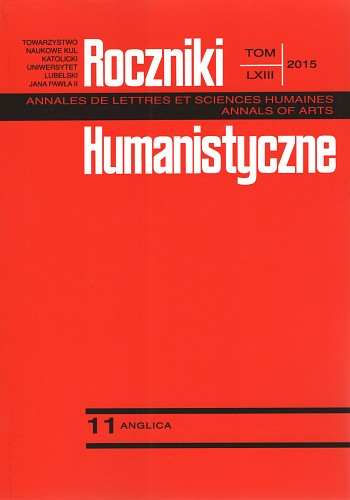America of future past: the post-apocalyptic chronotope of Jim Crace’s The Pesthouse
America of future past: the post-apocalyptic chronotope of Jim Crace’s The Pesthouse
Author(s): Katarzyna PisarskaSubject(s): Language and Literature Studies, Studies of Literature, Other Language Literature
Published by: Towarzystwo Naukowe KUL & Katolicki Uniwersytet Lubelski Jana Pawła II
Keywords: Jim Crace; chronotope; utopia; dystopia;
Summary/Abstract: Drawing on Mikhail Bakhtin’s assumptions concerning the literary chronotope, the article explores spatio-temporal relationships in The Pesthouse (2007), a novel by contemporary British writer Jim Crace (b. 1946). Katarzyna Pisarska contends that the dominant, post-apocalyptic chronotope of the novel arises from the interaction of two generic chronotopes, utopian and dystopian, which question the American myth of manifest destiny towards its ultimate reassertion. The topos of “a city on a hill”, which presupposes the conflation of America’s past (Eden) and future (New Jerusalem), is reworked as the eponymous pesthouse—the place of disease and recovery of not only the novel’s protagonist but also, implicitly, of the American dream. In the end, Pisarska argues, the novel expresses a revisionist nostalgia (sensu James Berger), as it produces the shock of the past invading the present in order to bring forth a utopian impulse.
Journal: Roczniki Humanistyczne
- Issue Year: 63/2015
- Issue No: 11
- Page Range: 275-290
- Page Count: 16
- Language: English

